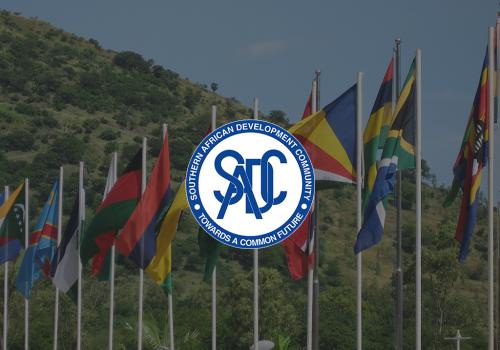SADC convenes a regional consultative meeting on the Women, Peace and Security Agenda The Southern African Development Community (SADC), in partnership with the United Nations Development Programme (UNDP) Regional Service Centre for Africa, will from 25th to 28th July 2022 hold a regional consultative workshop with key stakeholders in Member States to discuss the Women, Peace, and Security Agenda (WPS), in Johannesburg, South Africa.
The consultative workshop, which will be held with the support of the Government of Canada, the European Union and other partners (African Union Commission, ACCORD and UN Women), seeks to promote an in-depth understanding of the WPS agenda within the SADC Region. The overall objective of the regional consultation is to provides an opportunity for the SADC Secretariat to engage its Member States on the implementation of the WPS Agenda. This will cover the status of development and implementation of National Action Plans (NAPs) and promote reporting on progress including through the AUC-Continental Result Framework on WPS. The workshop will also provide SADC Member States with an opportunity to review and validate the SADC WPS Assessment Report that documents progress and challenges in implementing the WPS Agenda at Regional and National Levels.
It is anticipated that this workshop will increase the ability of SADC Member States to domesticate UN Security Council Resolution 1325 and implement the SADC Strategy on WPS (2018-2030), as well as increase their commitment to advancing and accelerating the implementation of the WPS agenda across the conflict spectrum, before conflict, during conflict and in post-conflict situations in the Region. The UNSC unanimously adopted UNSCR 1325 on WPS in 2000, and acknowledged that the nature of conflict was changing, with women, in particular, often bearing the disproportionate brunt of conflict. UNSCR 1325 called on states to address the impacts conflicts have on women and girls and to systematically mainstream their needs and perspectives when designing intervention programmes. Since the adoption of UNSCR 1325, the UNSC has passed nine additional resolutions, developing, and expanding the focus, creating what is now known as the WPS Agenda. Collectively, these resolutions clearly demonstrate the growing global recognition of the different ways in which conflict affects women and men, boys and girls, and their potential in building long-term recovery and peace.
The WPS Agenda recognises women’s agency and leadership in conflict resolution, peacemaking, peacekeeping, and peacebuilding, and therefore calls for their meaningful participation at all levels of peace and security processes. AU’s Agenda 2063 is aligned with the WPS agenda, and its Aspiration 6 has the vision of building inclusive and gender-responsive peace, by ensuring that gender and youth considerations are mainstreamed into efforts in creating “The Africa We Want.” AU Agenda 2063 is hinged on the full and active participation of women in all its development, governance, peace, and security processes. In 2008, SADC adopted the Protocol on Gender and Development, which came into full force in 2013 and was revised in 2016. The SADC Protocol on Gender and Development further identifies women’s political participation as a key priority area. In 2018, and as part of operationalising Article 28 (Peace Building and Conflict Resolution) of the SADC Protocol on Gender and Development, SADC developed its Regional Strategy on Women, Peace, and Security to facilitate mainstreaming of gender into SADC’s Peace and Security Structures and Processes.
The SADC Regional Strategy on WPS also calls upon Member States to adopt and implement measures to ensure equal representation and participation by both men and women in peace and security processes. Since the adoption of UNSCR 1325, more than 11 regional action plans (RAPs) have been adopted globally, including six RAPs adopted by Africa’s Regional Economic Communities (RECs), namely the Economic Community for West African States (ECOWAS); the Intergovernmental Authority on Development (IGAD); the Economic Community of Central African States (ECCAS); the East African Community (EAC), the Mano River Union; and SADC.

